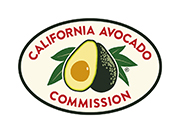Management and Resistance Monitoring of Avocado Thrips and Persea Mite
Persea mite was discovered attacking avocados in southern California in 1990. Avocado thrips was found in two isolated avocado groves, one in Orange Co. and the other in Ventura Co., in June 1996. Since then, these have become the two major arthropod pests of avocados in California although populations of each can vary in severity a good deal from year to year. Although it was an unusual year, according to Witney (2009), estimates of direct losses from avocado thrips damage to fruit and control costs for this insect combined to exceed $50 million in 2006.
Evaluation of Systemic Chemicals for Avocado Thrips and Avocado Lace Bug Management
We are evaluating systemic insecticides for the management of current and newly emerging pests of California avocados. Studies are being conducted in commercial avocado groves, under normal agronomic practices. Trees are treated using a variety of techniques – soil application and trunk injection – to establish the methods that will provide the best uptake of insecticide for the protection of the trees.
Biology, Management, and Resistance Monitoring of Avocado Thrips and Persea Mite
Our research is aimed at assisting with effective management of avocado thrips and persea mite. We will study how to use available pesticides most effectively, will search for new control materials, hopefully with different modes of action from available materials to reduce the potential for pesticide resistance development, and will evaluate alternative methods of pesticide application and timing of treatments.
Biology and Management of Avocado Thrips - Avocado Thrips Management in Ventura County
Avocado thrips, Scirtothrips perseae Nakahara (Thysanoptera: Thripidae) was discovered in California in July of 1996, and spread rapidly to most avocado orchards in Southern California. The economic impact of this pest has been estimated at an annual short-run loss of between $7.6 and $13.4 million in 1998 from the combined effects of losses in quality and increased production costs associated with avocado thrips management. Since the introduction, methods to
Biology and Chemical Control of Avocado Thrips; Pesticide Resistance Monitoring with Avocado Thrips and Persea Mite 2004
As fast as possible, we hope to continue to suggest solutions to the avocado thrips problem based on sound scientific research. We will determine how to use available insecticides most effectively, will search for new control materials, hopefully with different modes of action to reduce the potential for pesticide resistance development, and will evaluate alternative methods of pesticide application and timings of treatments.
- Previous
- 2 of 2


